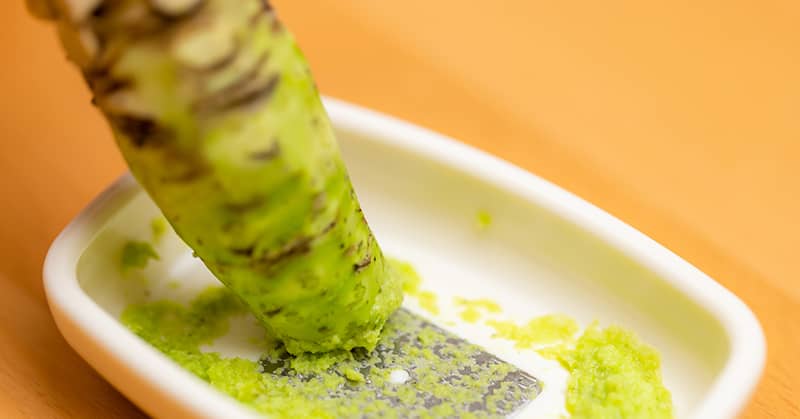
Sushi is an acquired taste and so is the spicy wasabi paste that’s usually served with it. Yet sushi connoisseurs point to the meal’s many health benefits from the fish, seaweed and now, the wasabi.
This hot spicy vegetable, well-known for producing fireworks-level intensity heat in your mouth, is now heating up speculation among researchers that it might be the healthiest part of sushi—especially when it comes to your brain.
Here’s what you need to know…
Wasabi is a member of the cruciferous vegetable family that includes broccoli, radishes, and cauliflower. And while those vegetables are well-known for helping lower your risk of cancer and heart problems, this tasty plant is starting to get a reputation for lowering the risk of memory problems.
In addition to accompanying a sushi meal, wasabi is a traditional food and medicine in Japan. And it’s true Japanese wasabi that’s believed to provide the most health benefits.
Wasabi – Powerful Traditional Medicine
In Japan, where wasabi originated, this spice has long been used as a medicine and food preservative. Its use on the raw fish in sushi was originally motivated by wasabi’s anti-bacterial effects. This vegetable releases gases from natural chemicals called isothiocyanates that slows and kills the growth of bacteria, molds, and yeast. And wasabi also helps kill off the bacteria that causes cavities in teeth.
Importantly, a growing body of research shows that these isothiocyanates can also help keep inflammation in the body under control and potentially be used to counter the effects of asthma, allergic reactions, and eczema.1
In addition, studies in Australia demonstrate that wasabi may be useful for helping you lose weight and cope with heart problems. This research indicates it can help lower blood pressure and fight off inflammation in heart muscle cells.2
But what about the brain?
Reviving And Supporting Memory
The beneficial power of wasabi for boosting brain function has revealed itself in recent Japanese tests on seniors. A three-month study of 72 people between the ages of 60 and 80 found that taking 100 mg of wasabi extract daily produces significant improvements in both short-term and long-term memory. These benefits were measured on standardized tests that analyzed folks’ ability to maintain mental concentration, navigate language skills and retain the aptitude to accomplish simple everyday tasks.3
In the study, people consuming the extract improved their short-term memory by 18 percent. The researchers believe that this improvement occurs when the body breaks down one of the isothiocyanates in wasabi. The resulting chemical limits inflammation in the brain’s hippocampus (an important memory center) and reduces oxidative stress.
Getting The Real Thing
Unfortunately, in the U.S., the wasabi you’re served in restaurants is almost always doctored horseradish masquerading as wasabi. Under most circumstances, real wasabi is too delicate to ship and use in a dining establishment.
On the other hand, if you want to grow your own wasabi, it’s not hard to do. Wasabi can be cultivated indoors using a “self-watering” pot which you can buy online. One website shared their directions here: https://lifehacker.com/grow-wasabi-like-a-houseplant-1850502343
Of course, to get the brain benefits claimed by the Japanese researchers, supplementation is a must. In the wasabi study that showed improvements in brain function, the subjects took supplements containing 6-(methylsulfinyl) hexyl isothiocyanate (called 6-MSITC), which is the brain-benefiting natural chemical in wasabi. At the time of this writing these supplements don’t appear to be readily available, but you can find supplements of wasabi for sale online.
